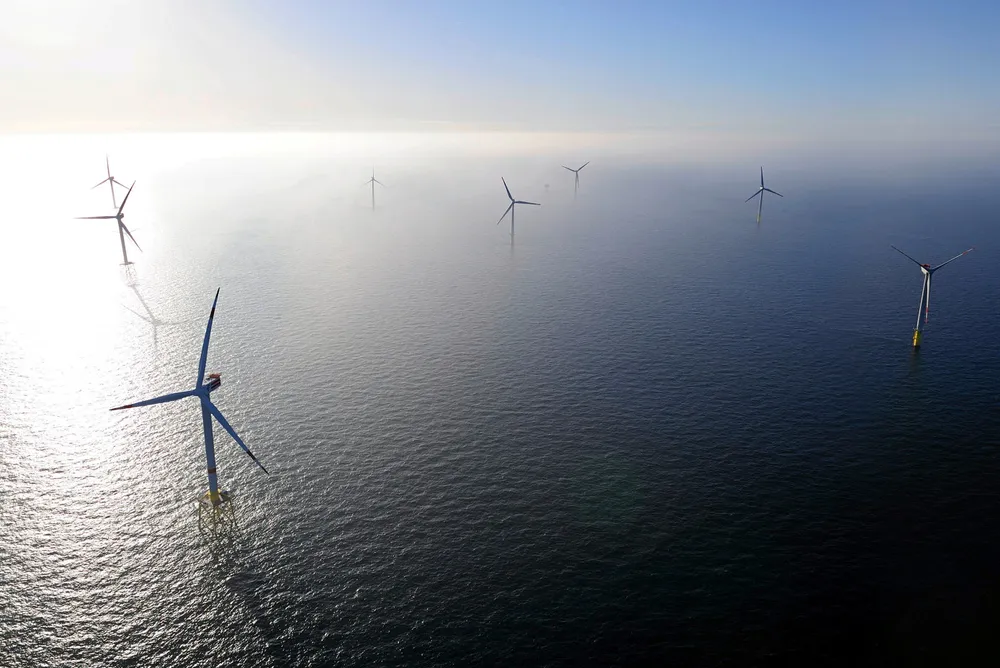Hydrogen electrolyser pilot planned at Germany's first offshore wind farm
Alpha Ventus deployment to research feasibility of H2 production at sea and test components

A trio of German partners is planning to deploy a 10MW electrolyser pilot at the nation's oldest offshore wind farm to test direct production of hydrogen at sea.
Project company NorthH2, the German Offshore Test Field and Infrastructure operating firm (DOTI) and the country’s Offshore Wind Foundation signed a declaration of intent to install the electrolyser at Alpha Ventus in the North Sea.
The offshore electrolyser project aims to demonstrate the feasibility and efficiency of hydrogen production directly at sea and to test required components. The proton exchange membrane (PEM) electrolyser is slated to be placed on a wind turbine foundation, said a statement which gave few details of the plan or its timings.
“The 10MW offshore electrolysis demonstrator is a crucial step towards enabling the production of green hydrogen directly at sea,” NorthH2 managing director Andreas Wellbrock said.
“This will help us to significantly increase the efficiency and sustainability of hydrogen production while avoiding the challenges of grid connection issues.”
"The market ramp-up in the hydrogen sector is currently confronted with many different technical and economic challenges that need to be overcome,” Offshore Wind Foundation managing director Karina Würtz said.
“This is even more true for hydrogen production at sea. Here, one should first test with a cool head how the harsh conditions of the North Sea affect the technology components and maintenance requirements."